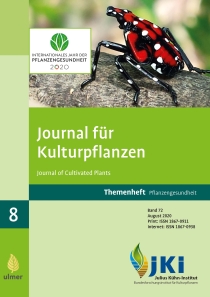New plant health approach in the EU
DOI:
https://doi.org/10.5073/JfK.2020.08.02Keywords:
EU plant health regulation, EU official control regulation, Union quarantine pests, priority pests, regulated non-quarantine pests (RNQP), regulated plants, high risk plants, operator obligations, notification obligationsAbstract
The discipline of plant health is crucial for plant production, healthy ecosystems and biodiversity not only in the EU but globally. Due to the increasing global trade of plants and tourism, the risk of unintentionally introduced harmful organisms that were previously absent from the EU is rising. The new EU regulations (EU) 2017/625 (Control Regulation) and (EU) 2016/2031 (Plant Health Regulation) replace the previous regulatory system for plant health (Directive 2000/29/EC). The new plant health system strengthens the precautionary principle and lays down new plant health measures against the introduction and spread of harmful organisms. In this context, resources are focused in the early stages of the production and marketing chains of plants and plant products as well as during their import. The scope of the Plant Health Regulation is further extended to include more plants and plant products and affected operators, institutions and individuals compared to former rules. The public and private persons are given more responsibility due to information obligations and notification requirements. In addition, detailed plant trade traceability schemes and harmonised standards for official controls have been established to achieve the objective of improving the Union's protection against the introduction and spread of harmful organisms.
Downloads
Published
Issue
Section
License
The content of the journal is licensed under the Creative Commons Attribution 4.0 License. Any user is free to share and adapt (remix, transform, build upon) the content as long as the original publication is attributed (authors, title, year, journal, issue, pages).
The copyright of the published work remains with the authors. The authors grant the Journal of Cultivated Plants, the Julius Kühn-Institut and the OpenAgrar repository the non-exclusive right to distribute and exploit the work.







